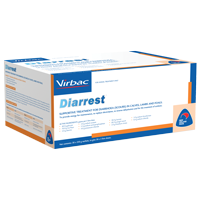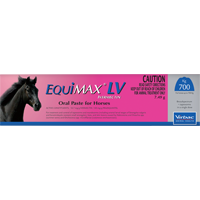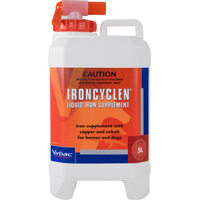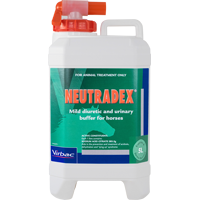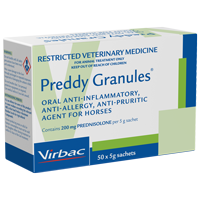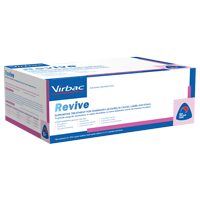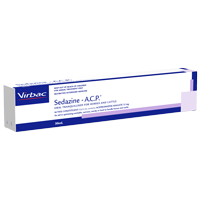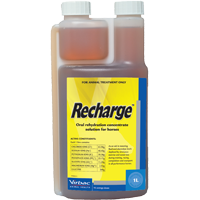
Worming your Horse
Underestimating your horse's weight and under-dosing can leave it at risk of serious disease including colic, diarrhoea, weight loss and even death.
Most horses that are carrying large worm burdens will show signs such as a poor, dull coat, weight loss or inability to gain weight and, in more severe circumstances if left untreated, stomach upsets, illness and serious colic.
Correct and regular worming of your horse will never completely remove all worms or parasites, but will help to control them from potentially harming your horse.
Did you know that there are some 20 or more internal parasites that can affect your horse? Do you know that some of these feed on the lining of your horses intestines, some attach by strong suckers to the gut and cause irritation and some wander around through the tissues of the horse (through blood vessels, the liver and under the skin)? Finally, did you know that some are transmitted by flies or pasture mites, some through milk and others can penetrate through the skin of your horse?
All in all these parasites pose a diverse and confusing threat to your horse with the only certainty being that some of them will infect your companion. Well, what happens if they do infect my horse?
Worms or internal parasites can cause a variety of problems in your horse. The simplest signs include not putting on weight, dull coat, reduced appetite, mild colic or anxiety and an itchy backside. The next phase includes diarrhoea, anaemia, lowered ability to exercise, susceptibility to infections, non-healing sores ("summer sores"), coughing and significant or recurrent colic. If things get out of hand these parasites can cause pneumonia, emaciation, severe and debilitating diarrhoea and colic, gut emergencies such as torsion, intussusception and perforation, and it is possible that some of these can lead to the death of your horse.
It must be emphasised that, for the well cared for horse, the milder signs are by far the more likely to occur.
The signs described above will be essentially caused by three main mechanisms:
- The movement and attachment of the parasite;
- The way it feeds; and
- The way the horse’s body respond to the presence of the worm
Worms that wriggle around in the intestine will irritate the gut. This can cause diarrhoea and colic. Pinworms lay their eggs around the anus of the horse. This process irritates the backside and causes itching. Tapeworms accumulate in a small area and attach to the gut lining by way of strong suckers. These suckers cause pronounced irritation and the presence of large numbers in one area can cause blockage. Bots also strongly attach and can cause damage to the lining of the stomach as a result.
Parasites that travel through the tissues can cause swelling and inflammation in those tissues. Blood worms can cause swelling of the arteries that they travel through. This swelling can block a blood vessel and cause death to the tissue at the end of the vessel. Roundworms can cause damage to the lung and windpipe (coughing and pneumonia).
Small strongyles (redworms) "bite" big chunks of tissue from the lining of the intestine and feed on blood. This can cause diarrhoea and anaemia. Roundworms just sit in the gut and "suck up" nutrients from the feed, making it difficult for the horse to gain any value from its feed whilst tapeworms can cause life-threatening colic.
In response to the presence of the invaders, the horse will respond in a number of ways. The swelling described earlier is part of the immune/inflammatory response to the worm and it is this swelling that can cause blockage of blood vessels. The gut itself may over-respond to the irritation present resulting in colic, watery diarrhoea or emergencies such as twisting of the gut or intussusception (telescoping of the gut).
There are obviously many ways that parasites can cause problems. As suggested, there are also many different parasites to be wary of. All horses will get exposed to at least some of them so there is always the possibility of developing some of the problems detailed above.
There are a number of management approaches that will help and these include collection of droppings, keeping stocking rates lower, paddock rotation, supplementary feeding and putting foals onto cleaner paddocks. Factors such as seasons, rainfall, paddocks available and number and type of horses will all affect the best way to approach management practices. Your local veterinarian is the best one to consult about this.
In combination with good management practices, horse owners should use an effective and appropriate worming product and regime. A product that provide owners with total efficacy against all the internal parasites of horses such as Equimax® LV should be used regularly to prevent worm associated problems. Or Strategy-T® which is a broad-spectrum horse wormer which is effective on all susceptible equine worms and is safe to use on all horses including foals, pregnant mares and breeding stallions.


